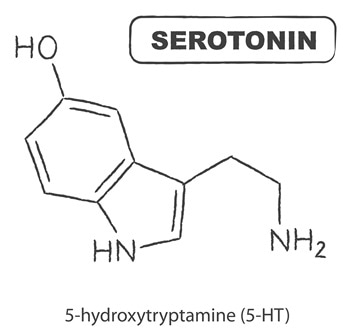Hormones has been discussed at length before, does not fit in to plenty of experiences described in this thread nor does the MehDMA effect only affect women. Any relationship between THC and MehDMA would obviously have been discovered a long ago. BTW, I'm not a woman.

Why do you assert it would have been discovered long ago? It's only been within the last 10 years that such ridiculously potent marijuana and THC derivatives and distillates has been readily available.
10 years ago it wasn't commonplace to find 25 to 30% THC content in marijuana.
In fact, in 2012 the average THC content of marijuana was only 12%.
We know that it takes a certain level of neuroreceptor agonism or antagonism to actually make morphological changes significant enough to disrupt the neurotransmitter system to any real degree. Consumption of two to three drinks of alcohol regularly with meals rarely instigates the morphological changes to GABA receptors and the upper regulation of glutamate receptors that instigates withdrawal. However, once the consumption exceeds 6 to 8 units of alcohol every day alcohol withdrawal syndrome is seen upon abstinence.
We have no idea What the break point for THC morphological changes to the cannabinoid receptors that would reduce the effects of MDMA in humans are, but there's evidence that it happens to rats. The dampening effect may only happen transiently.
And since the number of people that are affected by this mehMDMA is literally minuscule compared to the number of people that consume MDMA all the time. Whatever is causing the effect is something exceedingly rare.
I don't think anyone that's in the "the MDMA is different" or "there is something else in the pill" groups of mehMDMA proponents has kept records detailed enough to discount potential confounding factors like you assert in your response.
Many other steroid hormones like pregnenolone and allopregnenolone modulate neurotransmitters and affect dopamine release and can also blunt the response to THC.
Since steroid levels are known to fluctuate significantly due to stress, nutritional status, and other variables, there's no way to determine whether the subjective response to MDMA is affected in certain people by these transient changes in steroid levels.
Furthermore, I believe that the majority of proponents of the mehMDMA movement discount any potential interference from widely consumed substances and therefore don't investigate potential confounding substances.
For example, inhibition of the norepinephrine transporter reduces the subjective drug high of MDMA
"Reboxetine reduced the effects of MDMA including elevations in plasma levels of NE, increases in blood pressure and heart rate, subjective drug high, stimulation, and emotional excitation"
The norepinephrine transporter (NET) is located in the plasma membrane of noradrenergic neurons, where it functions to take up synaptically released norepinephrine (NE). The NET thus serves as the primary mechanism for the inactivation of noradrenergic ...

www.ncbi.nlm.nih.gov
I have never heard anyone state that norepinephrine release is necessary for the subjective high from MDMA yet it clearly is.
How many everyday substances inhibit NET to enough of a degree that the subjective effects of MDMA are reduced somewhat.
---
"In the presence of Ro4-1284, MDMA-mediated horizontal hyperlocomotion was delayed and attenuated, whereas rearing activity was abolished."
3,4-(±)-Methylenedioxymethamphetamine (MDMA, Ecstasy) is a ring-substituted amphetamine derivative with potent psychostimulant properties. The neuropharmacological effects of MDMA are biphasic in nature, initially causing synaptic monoamine release, ...

www.ncbi.nlm.nih.gov
There are only a few specifically designed VMAT2 inhibitors. However, It was recently found there are many non-selective beta adrenergic blockers that inhibit VMAT2, as well as ziprasidone. These include carvedilol, salmeterol (advair), and formoterol(foradil)
Advair and foradil are prescribed to millions of people for asthma control.
Vesicular monoamine transporter 2 (VMAT2) is responsible for packing monoamine neurotransmitters into synaptic vesicles for storage and subsequent neurotransmission. VMAT2 inhibitors are approved for symptomatic treatment of tardive dyskinesia and Huntington’s ...

www.ncbi.nlm.nih.gov
How many other pharmaceuticals or everyday substances have some level of inhibition on VMAT2 but are unknown because there were never any assays done to assess it?
After all, we're not talking about complete abrogation of the effects of MDMA. We're talking about some reduction enough to say that the MDMA really wasn't that good.



